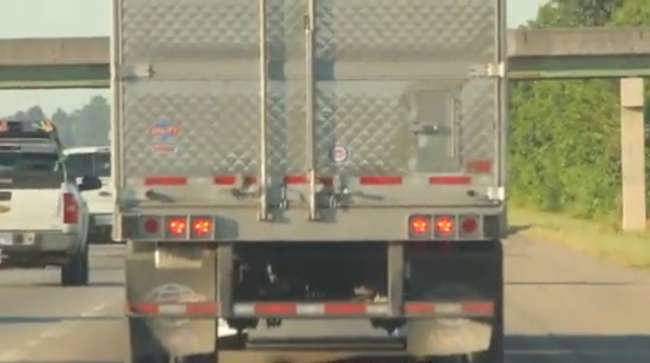Senior Reporter
Intellistop Owner Takes FMCSA to Court

[Stay on top of transportation news: Get TTNews in your inbox.]
Federal trucking regulators have been hit with a flurry of exemption requests from motor carriers looking for long-term authority to deploy a brake-lamp technology with a pulsating bulb feature intended to reduce rear-end collisions with trucks and trailers.
The requests are the latest development in a more than two-year administrative battle between the Federal Motor Carrier Safety Administration and the owner of Intellistop Inc., a pulsating brake technology that has been touted by the company as a system that could save lives.
The requests for exemptions by seven motor carriers were made public by FMCSA earlier this month, about six months after the agency denied an exemption request to Intellistop, the manufacturer of the pulsating brake technology. The rejection came despite claims by the company that federal research and similar real-life carrier use of amber pulsing lights have suggested it could save lives.
In October, FMCSA said the company failed to demonstrate that the system would provide the minimum level of safety required by federal regulations.
Despite issuing the denial, the agency said it believes that previous research programs demonstrate that rear-signaling systems may be able to “improve attention getting to reduce the frequency and severity of rear-end crashes — though that benefit must be balanced against increased risk of driver distraction and confusion.”

Hanby
The latest salvo by Intellistop came in January, when the company’s owner, Michelle Hanby of Arkansas, responded to the denial by asking the Court of Appeals for the District of Columbia to overrule the agency’s decision.
In response, an FMCSA spokesman said, “The department does not comment on any ongoing litigation, but information related to the current status of litigation is publicly available through the court.”
The Intellistop lawsuit said, “The only reason for the exemption request is to remove any lingering regulatory uncertainty created by a 1960s-era ‘Steady-Burning Rule’ requiring exterior vehicular lamps to remain ‘steady-burning.’ Because the administrative record clearly shows the exemption would improve safety, the denial is unlawful.”
The Intellistop system enables brake lights to flash four times in 2 seconds when a driver first depresses the brake pedal. The company said the device fits into the nosebox of a truck trailer — or in-line with a light connector on straight trucks — and prompts the pre-existing brake and marker lights to pulsate while simultaneously maintaining steady illumination. No extra equipment is required to install the system, according to the company.
In written comments filed in 2021 supporting the Intellistop exemption, a number of carriers and other trade organizations, including American Trucking Associations, said the system had the potential to save lives and should be permitted.
“I’m very positive at this point,” Hanby said. “I think people are starting to speak up on the exemption request. I really thought FMCSA was going to be an ally on this.”
The seven companies seeking the exemption:
- Meiborg Brothers Inc., Rockford, Ill.
- JM Bozeman Enterprises, Malvern, Ark.
- Polytech Plastic Molding, Prairie Grove, Ark.
- Gemini Motor Transport, Oklahoma City.
- DJ’S Fundraising Inc. of Clayton, Okla.
- Brent Higgins Trucking Inc., Mulberry, Ark.
- Encore Building Products, Springdale, Ark.
FMCSA has said that rear-end crashes account for approximately 30% of all crashes. They often result from a failure to respond, or delays in responding to a stopped or decelerating lead vehicle. Data on crashes that occurred between 2010 and 2016 show that large trucks are consistently three times more likely than other vehicles to be struck in the rear in two-vehicle fatal crashes.
Brent Higgins, owner of Brent Higgins Trucking, said he saw a demonstration of the system at a trucking meeting, and that if they were approved by FMCSA he would install it on his trucks.
“It was the first of its kind that I’ve seen,” Higgins said. “Just imagine if we have to come to stop and someone hits us pretty hard. Anything that can draw extra attention to a vehicle stopping, it could possibly be a good investment. I don’t understand why the light flashing would create a distraction. I’ve seen them on tankers and dump trucks, and they work.”
Want more news? Listen to today's daily briefing below or go here for more info:




